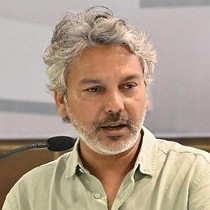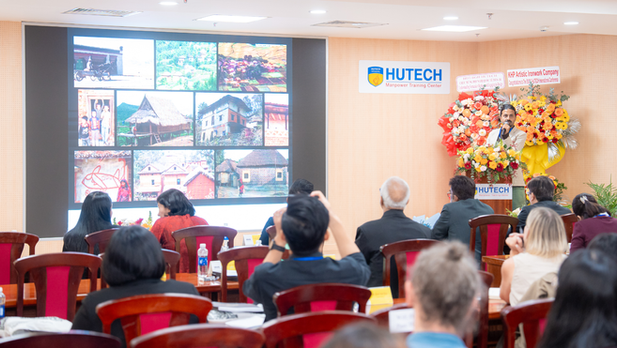
ISVS-14 Vietnam
2025 Theme
Understanding Vernacular Heritage and Engaging in Design
6 Sub-Themes
Who we are?

The International Seminar on Vernacular Settlements (ISVS) is one of the longest-running seminar series in the field of vernacular architecture and settlement studies. Started in 1999 at the University of Indonesia, in Depok, Indonesia, the seminar has been held in different parts of the world, such as India, Sri Lanka, North Cyprus, Turkey and Thailand. Through these, ISVS has brought together a community of scholars, professionals, and academics who have contributed to the study of vernacular practices in various capacities and fields. ISVS envisions to contribute knowledge to the understanding of vernacular and its manifestations in the historical past and the contemporary settings. This is to establish the meaningfulness and relevance of vernacular traditions, as well as cultural practices in the contemporary world. Those who participate in ISVS seminars become members of the International Society for the Study of Vernacular Settlements (ISVS). * Selected papers from the ISVS seminars will be published in the journal titled ISVS e-Journal, published since 2013.
-big_edited.png)
VDAS is a social organization, working voluntarily with self-discipline in order to persuade and encourage creativity in design to serve the living and life and to create the conditions that promote economic developments in Vietnam. At the same time, it envisions protecting the rights of the designers to conceptualize many new designs and aesthetics, inherited from and promoted by the traditional and cultural elite of the nation, so that they can be promoted and integrated internationally through the market economy. As such, VDAS is tasked with driving policy debates about design in Vietnam and with being a central point of contact and knowledge on the demonstrable impact that design can make towards meaningful, sustainable, social and economic invigoration and renewal. It is important that the voice of VDAS will resonate clearly and loudly to clarify and underscore not only the compelling economic and business progress but also the case of design. It is even more important that VDAS works to articulate the vital importance of design in all aspects of human life and to clearly pronounce that design is not only the key to innovation and creativity but that sustainable design is the key to shaping and delivering truly sustainable human communities to ensure the long-term survival of the human species.

Asian School of Knowledge (ASK) is an institution set up with the intention of examining how knowledge is produced and shared on a day-to-day basis particularly in Asian communities. It intends to promote the discovery and dissemination of knowledge by discussing them more formally through written and visual 'text': by means of publishing journals and organizing conferences. In order to achieve this, it first hosts the ISVS seminars. Further, it also publishes a number of journals: ISVS e-journal, Archi-Texts e-journal, SAAAK e-journal and A & B e-journal. Foremost of them is indeed the ISVS e-journal. The ISVS e-journal publishes research related to social and cultural aspects of human settlements in general and vernacular studies in particular. It specifically promotes the relevance of vernacular in the contemporary world. In fact, the ISVS e-journal is the official journal of the International Society for the Study of Vernacular Settlements (ISVS) established in 2013, and is now affiliated to ASK. Archi-Texts e-journal publishes research related to design and spatial experiences generated through architectural design by the Asian architects. SAAAK e-journal publishes research related to South American, Asian & African Knowledge; especially vernacular and everyday-knowledge present in ordinary and informal or formal activities of communities often not recognized by contemporary science. Finally, A & B e-journal publishes research related to the relations between built-environments and human behaviour: in other words, architecture and human behaviour. All the activities of ASK can be accessed at archi-texts.com
Gallery of Past ISVS Conferences
Our Special Guests & Speakers
CONFERENCE GALLERY
The 14th International Seminar on Vernacular Settlements (ISVS-14) has successfully concluded in Vietnam, marking a meaningful academic milestone and fostering valuable international exchange.
Held in a professional yet open and collegial atmosphere, ISVS-14 featured a series of keynote addresses, paper presentations, and in-depth discussions focusing on vernacular architecture, contemporary design, urban contexts, environmental consciousness, and cultural landscapes.
Although curated in scale, the conference stood out for its high academic quality, well-prepared proceedings, smooth organizational execution, and strong collaboration between ISVS – Asian School of Knowledge (ASK), VDAS, and Ho Chi Minh City University of Technology (HUTECH).
Beyond academic discourse, ISVS-14 offered the Vietnamese organizing team a valuable learning opportunity to gain hands-on experience in hosting an international scholarly conference—contributing to the strengthening of Vietnam’s academic engagement and positioning the country more prominently within the global architecture and design research network.


































